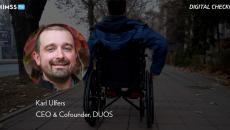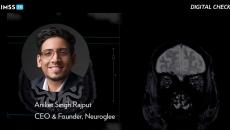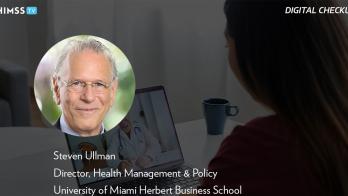Artificial Intelligence
Sumit Rana talks artificial intelligence helping providers respond to patients' questions, assist with medical coding and generate progress notes. And he points out how AI sometimes can be more empathetic than people.
Dr Yujia Gao, assistant group CTO at the National University Health System, shares some developments in NUHS holomedicine research.
HIMSS23 Europe Startup PitchFest winner Doctomatic captures and assesses remote patient measurements using visual AI. Carmen Pauline Rios Benton, cofounder of the Spanish startup, shares the details.
The first Taiwanese recipient of the HIMSS Davies Award, China Medical University Hospital, is looking to achieve both HIMSS Stage 7 INFRAM and Stage 6 AMAM this year, says Professor Oscar Lee, vice superintendent.
With the unique title of chief information innovation officer, Davis takes a forward-thinking approach to tech advancement. She discusses IT opportunities of standing up a new hospital, as well as provider and patient experience and AI initiatives.
The CIO, who is also an associate dean at Stanford University School of Medicine, discusses AI and innovation projects his team has been working on, where he’s prioritizing strategic IT investments, and some emerging technologies that have him intrigued.
Lynn Carroll, COO of HSBlox, discusses enterprise-level capabilities required for critical inputs into SDOH and other core processes, and the role of AI and machine learning to target the most vulnerable individuals.
DUOS uses large language models to leverage social determinants of health and enhance care-navigation access for Medicare beneficiaries. Feedback from platform users improves the artificial intelligence, said Karl Ulfers, cofounder and CEO.
She lays out the company's approach to generative AI for clinical documentation, advanced natural language processing and large language models through its partnership with Google, a conversational AI virtual assistant, and more.
Aniket Singh Rajput, CEO and founder of Neuroglee, talks the scope of the mild cognitive impairment issue and how cognitive care-at-home technology can help.


























